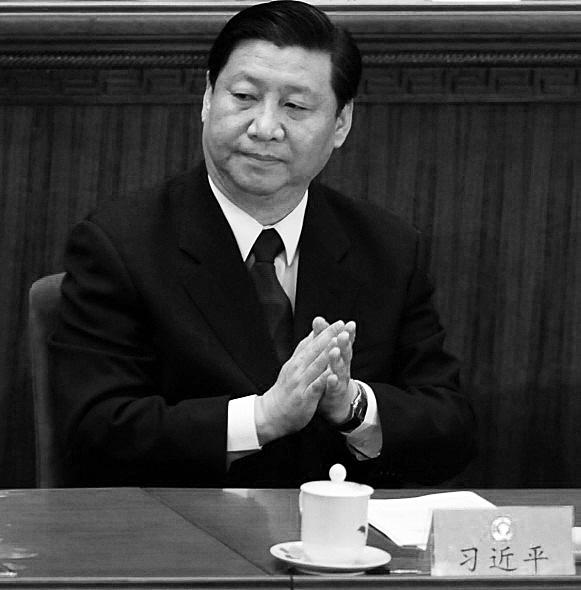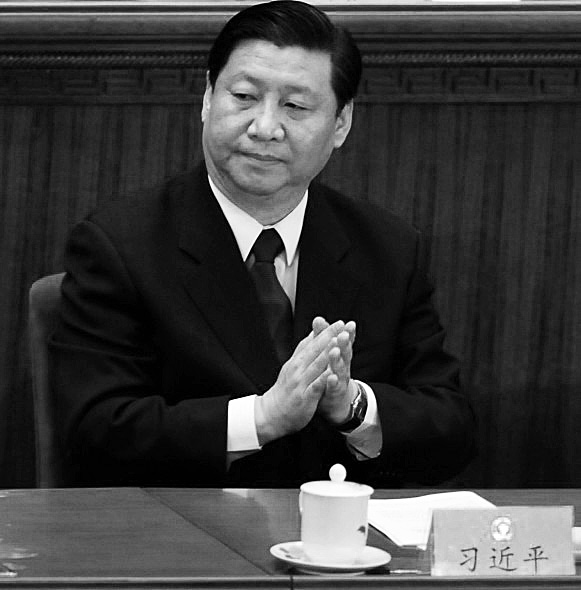It is not the first destination that comes to mind for most people visiting the United States, but for China’s Vice Chairman Xi Jinping, Iowa, America’s rural heartland, will likely offer welcome respite during his first official trip to the United States, as he nears his position as China’s next leader.
The U.S.-China relationship has become more complex as China’s economy has grown, and Xi’s visit is seen as important in establishing strong personal relationships with the U.S administration.
Yet, two days of high-level meetings in Washington saw President Barack Obama and Vice President Joe Biden impress upon Xi the responsibilities to come, including China’s greater global participation, concerns from American businesses, security, and human rights.
Following the meetings Wednesday night, Xi flew to Des Moines, Iowa, where he will attend a gala dinner sponsored by Iowa’s trade association for pork, soybeans, and corn, and a U.S.-China symposium sponsored by the U.S. Department of Agriculture on Thursday.
But not before attending an afternoon tea in rural Muscatine about 20 miles outside the Iowa capital. Xi was to meet the people he stayed with in 1985 when he visited the U.S. as a 31-year-old Hebei Province party official and director of the Feed Association of Shijiazhuang Prefecture.
Strong Words in Washington
His visit to the United States is seen as significant, the U.S. administration pointing openly to the raft of concerns surrounding trade and security that have arisen over the last decade.
Heeding calls from U.S. businesses, Obama indicated in his State of the Union address that he had enough of tiptoeing around China’s chronic trade and intellectual property infringements.
He intimated as much in his meeting with Xi on Feb. 14, declaring in his welcome speech that China had to work “by the same rules of the road.”
Biden went further the same day, delivering a litany of U.S. concerns related to China at a lunch he hosted in conjunction with Secretary of State Hilary Clinton, before a room of around 200 dignitaries and media.
He raised China’s well-documented and deteriorating human rights record, saying the United States sees human rights as “a key to the prosperity and stability of all societies.”
“We have been clear about our concern of the areas in which, from our perspective, conditions in China have deteriorated and about the plight of several very prominent individuals,” Biden said.
Mr. Xi responded that “the Chinese government will always put people’s interests first and take seriously people’s aspirations and demands,” a line that would not sit well with the many rights groups protesting outside the White House.
Iowa Welcoming
Whether the remonstrations from the United States will have any effect remains to be seen. Xi is still nine months away from the leadership role and recent reports from the mainland suggesting a political challenge may be awaiting the vice chairman upon his return.
What is certain is that after doing the rounds in Washington, hanging out with the folks in Iowa will be a welcome relief.
“China is Iowa’s fourth largest trading partner with exports of $599 million in 2010,” Tina Hoffman, marketing authority with the Iowa Economic Development Authority (IEDA), told The Epoch Times.
According to IEDA data, around one-third of the total exports to China consist of cereals and grains—particularly corn and soybean—with machinery coming in second at 15 percent.
No Escaping
During their Iowa sojourn Xi and his delegation are not escaping criticism of the Chinese regime.
Groups concerned about human rights in China, including the Tibetan community, Taiwanese, and Falun Gong practitioners, said they would continue to track Xi’s visit across America with protests organized in Des Moines and Los Angeles.
Iowa is also home to two U.S. Senators—Democrat Tom Harkin and Republican Chuck Grassley—who voted in favor of a bill aimed at forcing China to raise the value of the yuan.
The bill passed the Senate in October last year and drew strong objections from Chinese authorities.
Sen. Grassley believes China should face the international courts for keeping the currency low, saying it puts U.S. businesses at a disadvantage and is “unlawful.”
In joining the World Trade Organization 10 years ago, China has committed to abiding by trade rules of the global marketplace, he said. “If China is not willing to live up to its obligations, the behavior should be challenged under the international rule of law.”
Xi Jinping will leave Des Moines on Feb. 15, spending the last days of his U.S. trip in Los Angeles, where he will spend more time with Vice President Joe Biden and meet with California business leaders.





